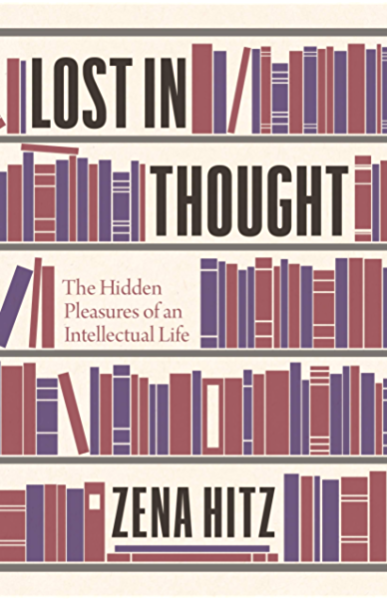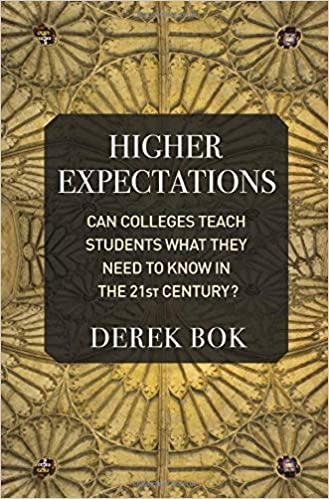Zena Hitz, Lost in Thought. The Hidden Pleasures of an Intellectual Life. Princeton: Princeton University Press 2020: A Review
Due to Corona-crisis, one of my students defended her bachelor thesis in the middle of August, during a time when I try to catch up with my reading. My student’s project was to chart the scholarly literature on climate change inaction from the framework of evolutionary psychology. The question of climate change inaction had obvious personal meaning to her, she was keen to understand on a psychological level why mankind was doing so little. Near the end of her oral defence she explained that she had certain doubts about the evolutionary framework, as it seemed to allow too little room for human agency. What surprised me was not so much her intuition, which I considered valid, but her comment right after that this was “only her opinion”, and “obviously out of line with the classes she had taken and the literature that she had studied”. What struck me, in short, was her lack of intellectual confidence, and I must admit that I felt a certain shame and apprehension that she would finish her studies without the necessary intellectual independence.
It is in this context that I read, and with great pleasure, Zena Hitz’ Lost in Thought. The Hidden Pleasures of an Intellectual Life. The book is an attempt to recover the joys of an intellectual life, that is, a life filled with books and conversation. Hitz’ main argument is that the intellectual life “feeds our human core – our inner resources for thought, reflection, and contemplation” (23). Her book offers wonderful stories about a delightful panoply of people – from the Virgin Mary to Malcolm X, from Plato and Augustine to Primo Levi, from Antonio Gramsci to Simone Weil – that show how reading books contributes to the development of one’s inner world, providing strength of convictions and developing the intellectual habits that makes one hold an opinion, and change one’s mind reflectively.
Two of Hitz’ examples spoke to me – and I think to my student’s predicament – in particular. The first was Hitz’ account of Albert Einstein’s intellectual life. Einstein, judged a failure as a graduate student in physics and unable to find work at a university, served as a clerk at a patent office for seven years. Effectively, this was a blessing in disguise. Removed from the competitiveness and pressure to conform – to the views of hotshot professors, university administrators, even students – Einstein enjoyed great intellectual freedom. He called the patent office “that worldly cloister where I hatched my most beautiful ideas” (Hitz 64, following W. Isaacson, Einstein: His Life and Universe). In the quietness of his office, Einstein felt free to follow his intuitions, to see and search, to fail and be frustrated, to persevere and to develop his own ideas, writing some of his most important papers.
Einstein was a person who flourished in his own space. The African American Muslim minister and human rights activist Malcolm X had a different personality, but also developed an intellectual life in a place of seclusion. Experiencing a difficult childhood, which included a number of foster homes and an early life immersed in drugs and crime, Malcolm X was imprisoned at the age of twenty-one for the period of ten years. On the advice of a fellow-prison mate, Malcolm began to read “first the dictionary, then books on etymology and linguistics. He studied elementary Latin and German. He converted to Islam, a faith introduced to him by his brothers. In the following years he read the Bible and the Qur’an, Nietzsche, Schopenhauer, Spinoza, and Kant, as well as works of Asian philosophy. He pored over an especially loved book of the archaeological wonders of the East and the West. He learned the history of colonialism, of slavery, and of African peoples. He felt his old ways of thinking disappear ‘like snow off a roof’” (69). Malcolm X’ time in prison, isolated from society and politics, were the most formative years of his life. It was the place where, through reading and conversation, he developed the strength of his convictions and the intellectual habits: “a disciplined inwardness, a constant struggle to see things as they were and to commit himself accordingly” (70) that, upon release, allowed him to become a leader of the Nation of Islam, “gathering fame as a clear and forceful voice for African American communities beaten down by the poverty and violence nurtured in racial prejudices” (70). Through reading, Malcolm X nurtured his inner world – the place where one’s opinions, convictions and passions reside. The intellectual activities allowed him to find himself, as it were. Like my student, Malcolm X sought to change the world. But perhaps unlike my student he had acquired the intellectual resources to know how he wanted to change the world.
Both Einstein and Malcolm X developed their intellectual selves outside standard intellectual institutions, that is, outside the walls of college and university. Hitz, herself a tutor at a liberal arts and sciences college on the East coast called St. John’s College Annapolis, seeks to create a similar level of intellectual freedom inside the classroom, by means of seminars that are heavily book-based and adhere to the three pillars of reading a good book, asking fundamental human questions, and allowing for intense and open-ended conversation (194). She critiques teaching what is commonly called ‘knowledge’, that is, the absorption of correct opinions by means of powerpoint lectures and otherwise, the administrative emphasis on learning outcomes, and the politicisation of the classroom. Although well-intentioned, according to her such practices miss the point of a liberal arts and sciences education.
In my own classroom, I sometimes feel that our students need to be told that it is okay, and even expected, that they develop a mind of their own. There is something about some students that communicates insecurity and even anxiety, and with this mindset it is simply easier to ask the teacher what to think. Moreover, contemporary culture – which Hitz labels as ‘spectacle-riddled culture’ – with its social media and a high level of commercialisation, tends to emphasise the outer world of appearances and seems to push the inner world that is nourished by books and reflection to the wayside. Given the circumstances, it may require an additional effort by us teachers to communicate our joy of the intellectual life, and its importance for human flourishing.
It could be said that, despite the huge diversity of source material, Hitz’ examples resonate in particular with an American audience, who will be more familiar with the likes of Malcolm X, W.E.B. Du Bois, and Dorothy Day. Lacking are examples from the Arab world, such as Averroes, to whom reading was hugely important for intellectual independence, and – for our sake – examples from the Dutch context. In addition, perhaps too implicit in the book is an awareness of the ability of silence, also as a technique in the classroom, of drawing people into their inner world. Pauses in class discussions make students alert, attentive, and activates their thinking (‘what is happening?’ ‘what’s at stake here?’ ‘what do I think about this question, in case the teacher may ask me?’). It contributes to the kind of ‘deep learning’ that Hitz’ beautiful book is a plea for, both inside and outside the classroom.

